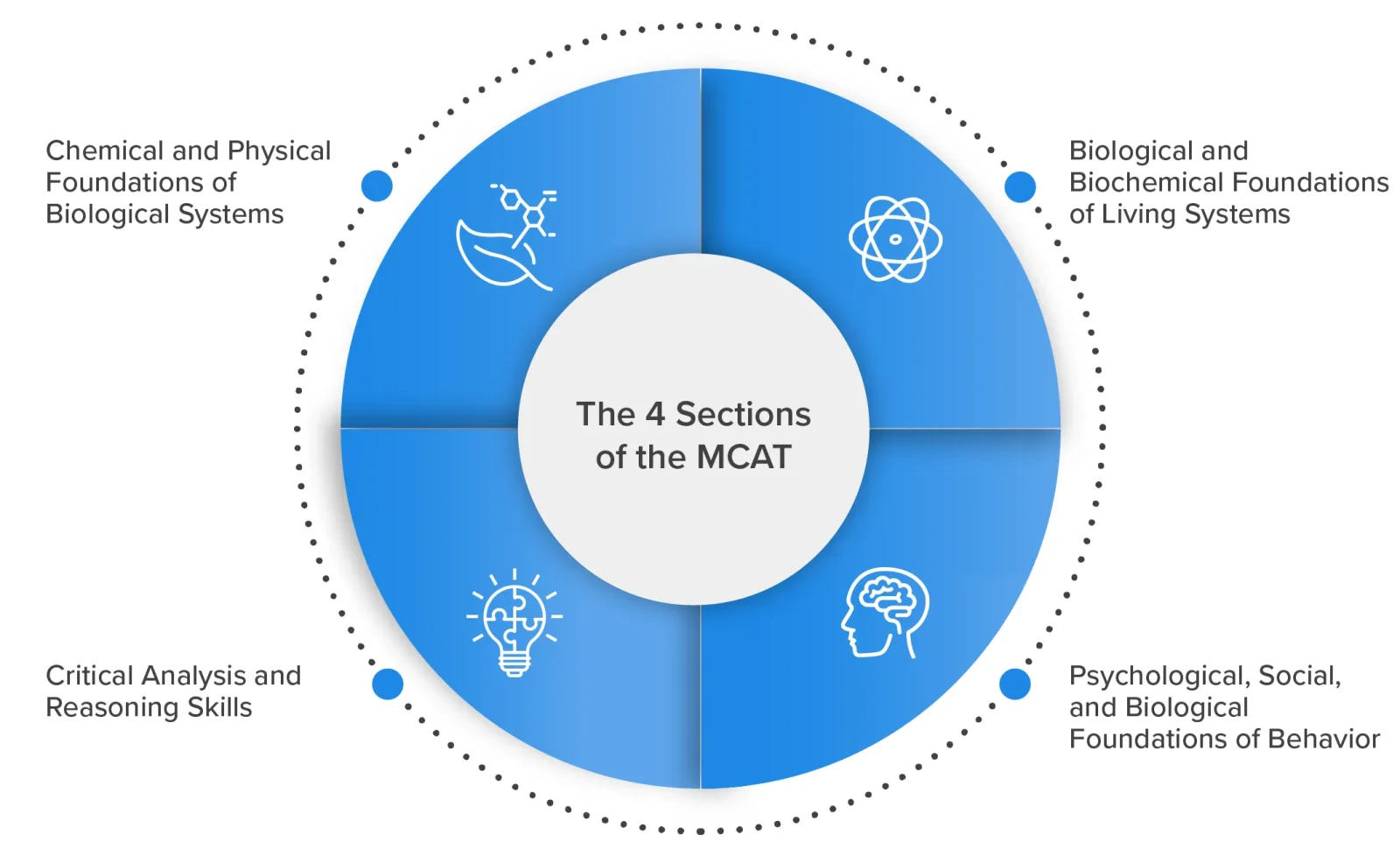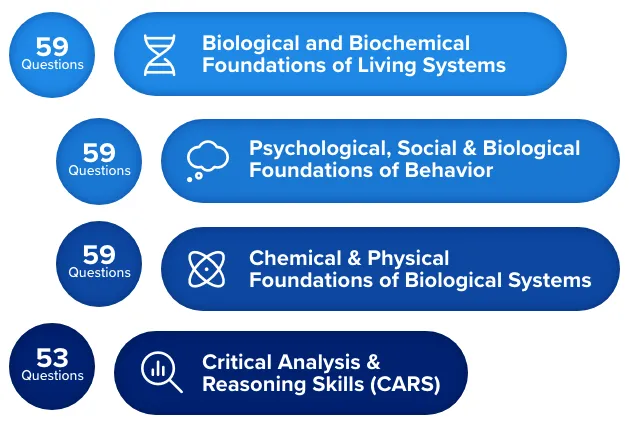What Is the MCAT®?
The Medical College Admission Test® (MCAT®) is a multiple-choice, standardized exam used by medical schools, health profession schools, and graduate programs to determine applicants’ skills and knowledge in topics correlated with success in medicine. The exam is administered by the Association of American Medical Colleges (AAMC) to more than 85,000 students annually.
What Is on the MCAT?
There are four MCAT sections that medical educators, physicians, residents, and medical students have identified as being crucial to success in medical school and practicing medicine. They are:
- Biological and Biochemical Foundations of Living Systems
- Chemical and Physical Foundations of Biological Systems
- Psychological, Social, and Biological Foundations of Behavior
- Critical Analysis and Reasoning Skills (CARS)
How Long Is the MCAT?
The MCAT is a marathon compared to most standardized exams, lasting just over 7.5 hours. Each of the four exam sections is tested for 90 to 95 minutes, making the total testing time about 375 minutes (6.25 hours).
How Many Questions Are on the MCAT?
There are 53 to 59 questions per MCAT section, coming in the form of passage-based and discrete (standalone) questions. Altogether, there are 230 questions on the MCAT. This makes building your test-taking endurance a vital piece of your exam preparation.
How Important Is Your MCAT Score?
Medical school is very competitive, making your MCAT score a vital piece of information for admissions departments. They will weigh your score along with your academic performance, exposure to healthcare and medical research environments, personal statement, and letters of recommendation to determine whether to accept you. MCAT scores range from 472 to 528, with 510 or higher being considered a “good” score. This total score is determined by adding your individual score from each section, ranging from 118 to 132.

When Do You Take the MCAT?
The MCAT is administered between January and September at hundreds of locations throughout the United States and Canada (in addition to select international sites). MCAT test dates are updated each year, and you should register for the MCAT as soon as you know your preferred testing date. Most students take the MCAT in their junior or senior year of college after having completed introductory science, psychology, and sociology courses. Some students choose to retake the MCAT if they don’t receive their desired score.
How to Study for the MCAT
The best way to prepare for the MCAT is to develop a study plan spanning at least 3 to 6 months before your exam. For many students, this consists of AAMC resources supplemented with an MCAT prep course. The latter will allow you to practice premium MCAT-style questions with more robust study tools, and provide insights on how to improve your score. The AAMC also encourages examinees to master introductory-level biology, physics, psychology, and sociology, as well as general and organic chemistry, and first-semester biochemistry.

